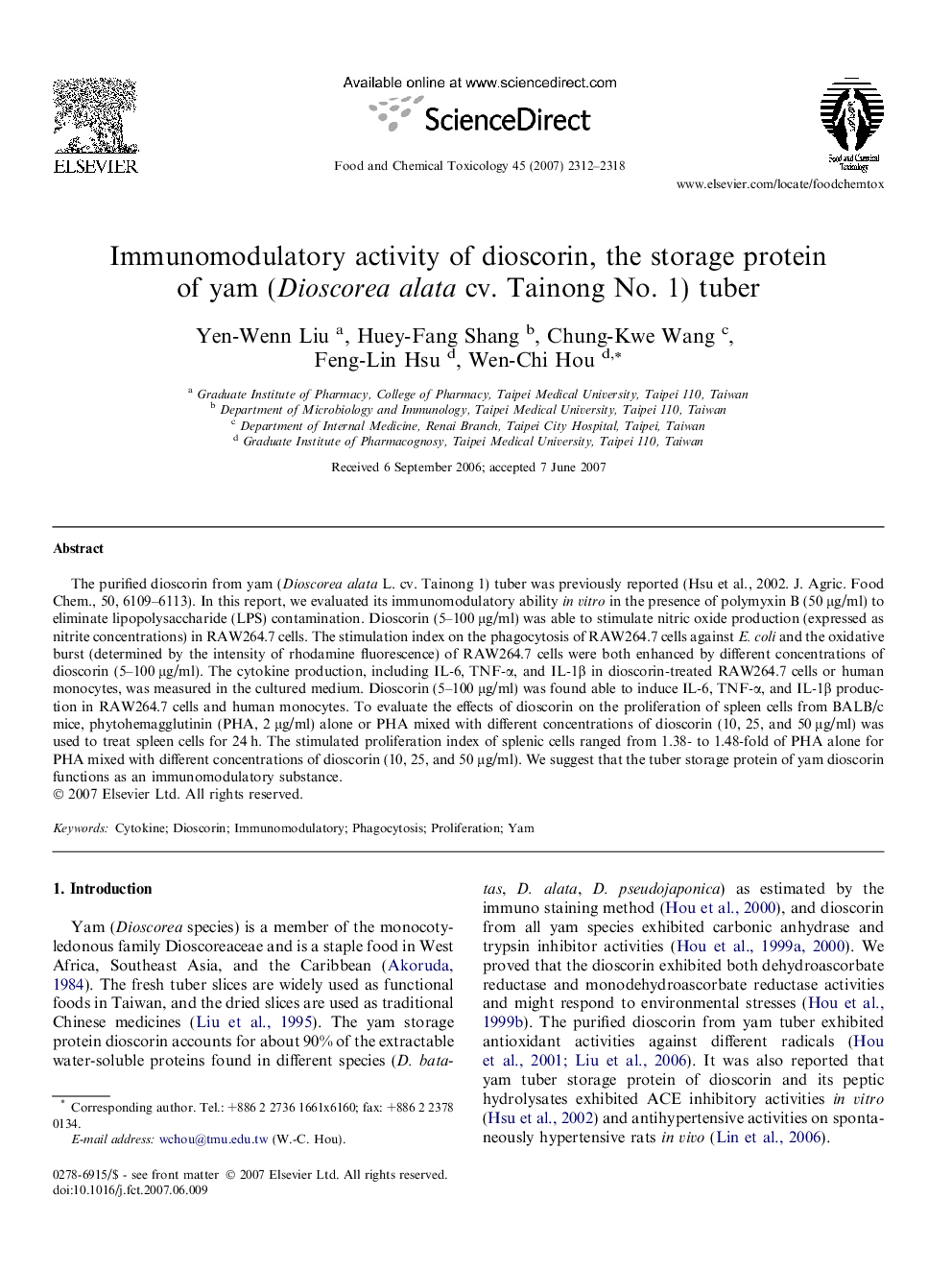| Article ID | Journal | Published Year | Pages | File Type |
|---|---|---|---|---|
| 2588012 | Food and Chemical Toxicology | 2007 | 7 Pages |
The purified dioscorin from yam (Dioscorea alata L. cv. Tainong 1) tuber was previously reported (Hsu et al., 2002. J. Agric. Food Chem., 50, 6109–6113). In this report, we evaluated its immunomodulatory ability in vitro in the presence of polymyxin B (50 μg/ml) to eliminate lipopolysaccharide (LPS) contamination. Dioscorin (5–100 μg/ml) was able to stimulate nitric oxide production (expressed as nitrite concentrations) in RAW264.7 cells. The stimulation index on the phagocytosis of RAW264.7 cells against E. coli and the oxidative burst (determined by the intensity of rhodamine fluorescence) of RAW264.7 cells were both enhanced by different concentrations of dioscorin (5–100 μg/ml). The cytokine production, including IL-6, TNF-α, and IL-1β in dioscorin-treated RAW264.7 cells or human monocytes, was measured in the cultured medium. Dioscorin (5–100 μg/ml) was found able to induce IL-6, TNF-α, and IL-1β production in RAW264.7 cells and human monocytes. To evaluate the effects of dioscorin on the proliferation of spleen cells from BALB/c mice, phytohemagglutinin (PHA, 2 μg/ml) alone or PHA mixed with different concentrations of dioscorin (10, 25, and 50 μg/ml) was used to treat spleen cells for 24 h. The stimulated proliferation index of splenic cells ranged from 1.38- to 1.48-fold of PHA alone for PHA mixed with different concentrations of dioscorin (10, 25, and 50 μg/ml). We suggest that the tuber storage protein of yam dioscorin functions as an immunomodulatory substance.
